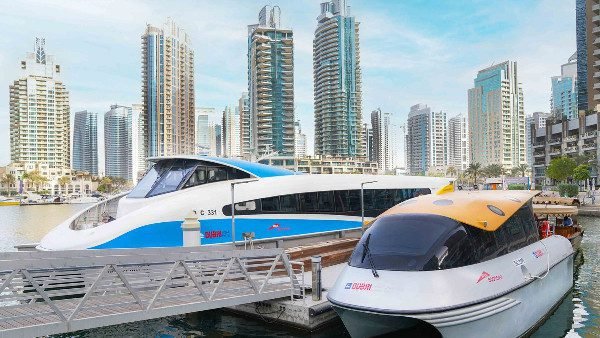The Roads and Transport Authority (RTA) is implementing a data-driven approach to optimize its water transportation services, including ferries, abras, and water taxis.
This initiative promises a smoother and more efficient commute for residents and tourists alike.
Traditionally, water transportation schedules have followed a fixed pattern, regardless of seasonal fluctuations in ridership. This often resulted in long wait times during off-peak hours and overcrowded vessels during peak seasons. The RTA’s new approach leverages big data analytics to understand passenger flow patterns. By analyzing historical data and real-time ridership information, the RTA can create dynamic schedules that adapt to demand.
This shift towards data-driven scheduling offers a multitude of benefits. Passengers can expect shorter wait times and more frequent service during peak hours. Conversely, during off-peak hours, the RTA can reduce the number of trips, leading to operational cost savings. This not only benefits the RTA financially but also translates to a more environmentally sustainable transportation system by reducing fuel consumption.
The use of big data in transportation is a growing trend worldwide. Dubai’s initiative serves as a prime example of how this technology can revolutionize public services. By embracing data analytics, Dubai is not only enhancing the water transportation experience for its commuters but also positioning itself as a leader in smart and sustainable urban mobility.
Here are some additional points to consider:
- This initiative aligns with Dubai’s broader vision of becoming a smart city. By leveraging technology to improve public services, Dubai is creating a more efficient and livable urban environment.
- The success of this program hinges on the RTA’s ability to collect, analyze, and interpret vast amounts of data effectively. Robust data security measures are also crucial to ensure passenger privacy.
- It will be interesting to see how this program evolves in the future. The RTA may incorporate additional data sources, such as weather patterns and special events, to further refine its scheduling algorithms.
Overall, Dubai’s adoption of big data for water transportation scheduling represents a significant step forward in public service optimization. This initiative has the potential to improve the travel experience for countless commuters while promoting a more sustainable transportation system.


